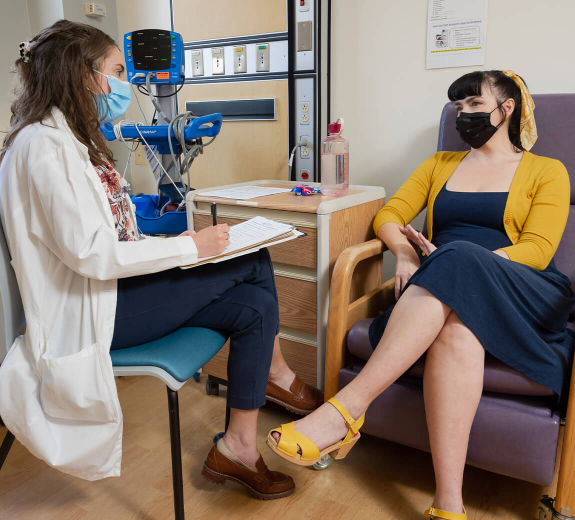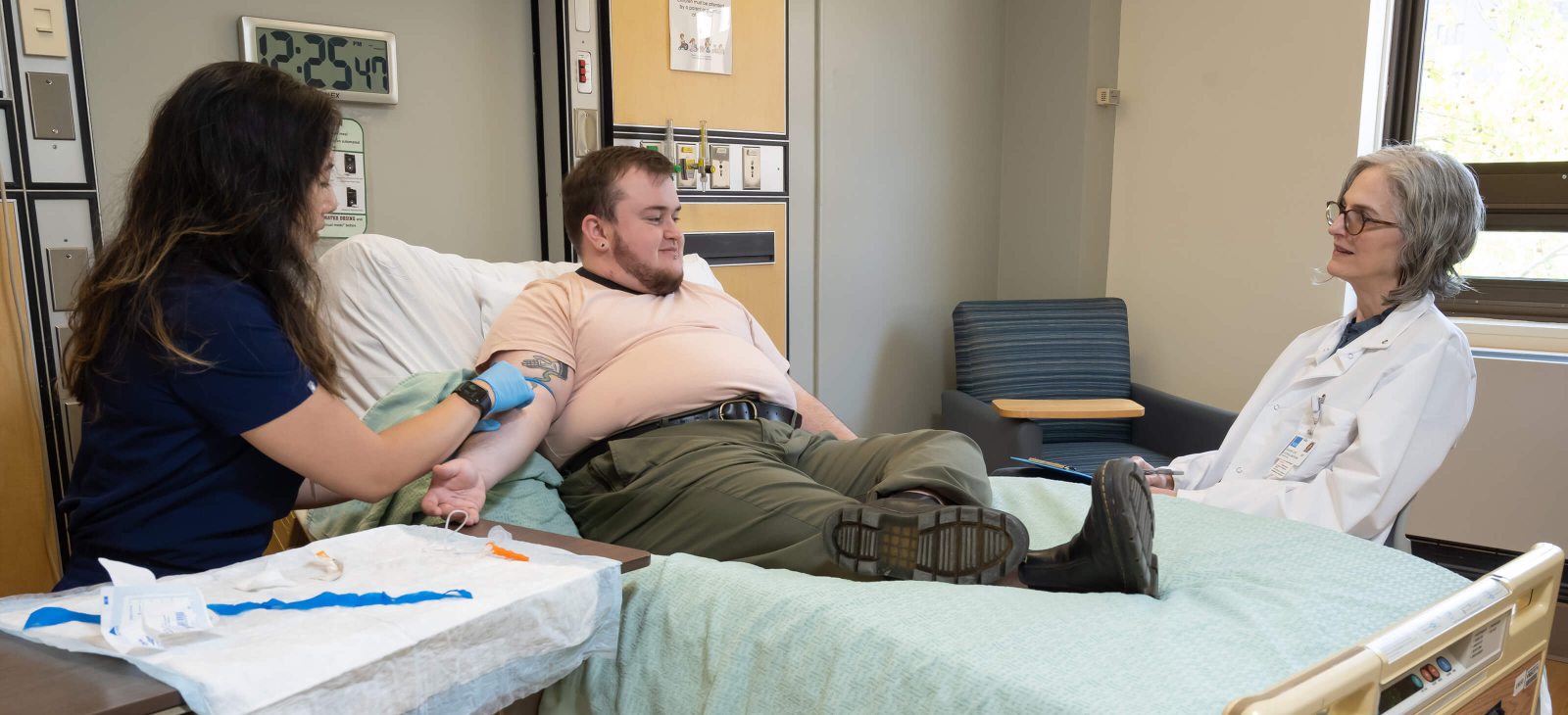Building and Leading Immunology Trials Through the CII
Dr. Lord started out as a primary care physician and never planned to work in research. Then she learned about an opening on BRI’s diabetes clinical research team. Having lived with type 1 diabetes (T1D) for most of her life, she jumped at the opportunity to help predict, prevent, reverse and cure T1D.
An early project she worked on was teplizumab — an immune therapy aimed at delaying or even preventing T1D. BRI conducted some of the research that laid the groundwork for this drug.
“The final results brought tears to my eyes: The medicine could delay T1D for a median of two years,” Dr. Lord says. “That’s a day we’ll never forget because it showed for the first time that everything we’ve been working toward is possible, that we can change the course of autoimmune diseases before they start.”
BRI’s Diabetes Research Program has grown into the CII and now runs clinical trials for other autoimmune diseases. Here are two noteworthy trials underway.
Exploring Viruses and Immune System Diseases
BRI’s Carmen Mikacenic, MD, and Matt Altman, MD, MPhil, are exploring whether immune system disorders such as rheumatoid arthritis (RA), asthma or allergies affect how the immune system responds to viruses like the common cold or COVID-19. They are studying blood, saliva and nasal samples from adults with RA, children with asthma and allergies, and people with no immune system diseases. Their goal is to better understand if and how viruses impact RA, asthma and allergies and find ways to improve care for these conditions.
Can IBD Medicines Slow T1D?
Several medicines can slow the immune system’s attack on the gut in people with inflammatory bowel disease (IBD). The CII team is looking at whether those same medicines might also help with T1D by slowing attacks on the pancreas. This trial is testing a medicine called vedolizumab and a combination of vedolizumab and another medicine, etanercept, to see if it can slow the progress of T1D.





